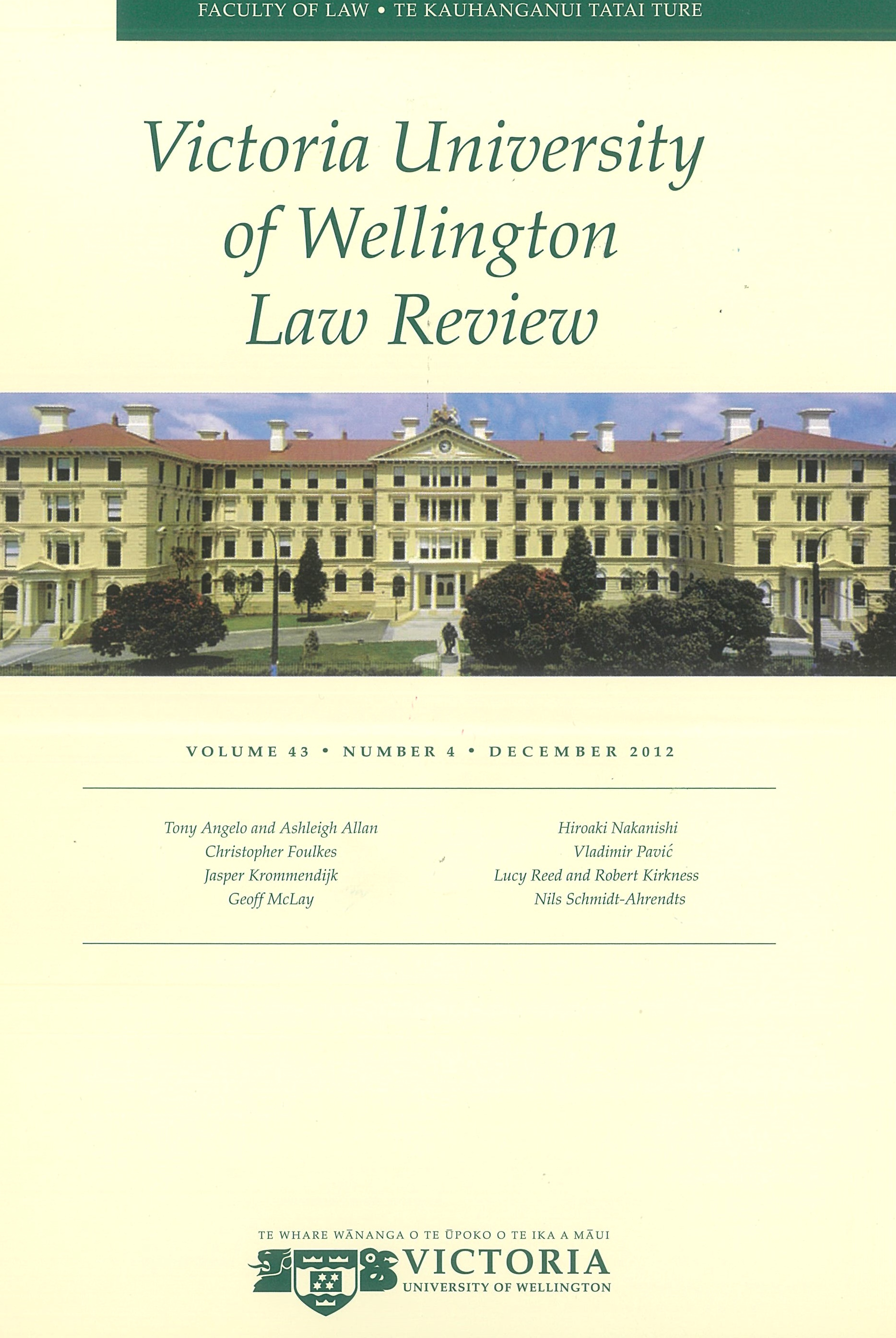Old Seeland, New Netherland and New Zealand: Some Thoughts on the Possible "Discovery" of Investment Treaty Arbitration in New Zealand
DOI:
https://doi.org/10.26686/vuwlr.v43i4.5015Abstract
New Zealand has to date enjoyed the luxury of engaging with the modern investment treaty regime through only three free-trade agreements with compulsory investor-State arbitration clauses. This may be about to change. New Zealand is negotiating a series of further free-trade agreements, including the Trans-Pacific Partnership Agreement, many of which are likely to provide for investor-State dispute resolution. New Zealand faces a choice in these negotiations: should it reject investment treaty arbitration on the basis that the risks, especially the perceived risks of restricted freedom to regulate, are too great or instead seek to make use of the opportunities investment treaty arbitration presents? This article looks at the evolving system of investment treaty arbitration and the different ways in which States seek to make use of it, with a focus on the Netherlands, the United States, and New Zealand.
Downloads
Downloads
Published
How to Cite
Issue
Section
License
Authors retain copyright in their work published in the Victoria University of Wellington Law Review.


